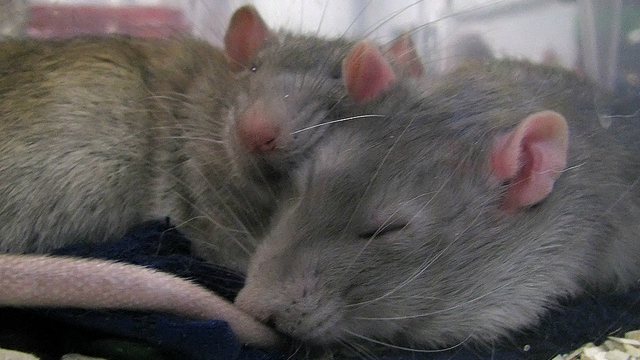 FLICKR; TOMI TAPIO KBrain-derived neurotrophic factor (BDNF), a protein linked in previous research to long-term memory and to multiple brain-related diseases in humans, helps rats regulate when and for how long they slip into rapid eye-movement (REM) sleep, a new study finds. The work, by Jennifer Garner, Subimal Datta, and colleagues at the University of Tennessee, appears in a poster presented at the annual Society for Neuroscience meeting this weekend.
FLICKR; TOMI TAPIO KBrain-derived neurotrophic factor (BDNF), a protein linked in previous research to long-term memory and to multiple brain-related diseases in humans, helps rats regulate when and for how long they slip into rapid eye-movement (REM) sleep, a new study finds. The work, by Jennifer Garner, Subimal Datta, and colleagues at the University of Tennessee, appears in a poster presented at the annual Society for Neuroscience meeting this weekend.
The researchers genetically altered rats to produce 50 percent of the normal amount of BDNF, and using electrodes implanted in the animals’ brains, compared their sleep patterns to that of normal rats used as controls. They found that the rats with lower levels of BDNF had fewer and shorter bouts of REM sleep than the normal rats, Garner said at a poster presentation on November 11.
Next, the team deprived all of the rats of just REM sleep for three hours, by monitoring their brain waves and using a device to lift a rat’s head when they saw it going into REM sleep. Garner and colleagues had expected that after the three-hour period ended and the rats were allowed to sleep normally, they would go ...




















